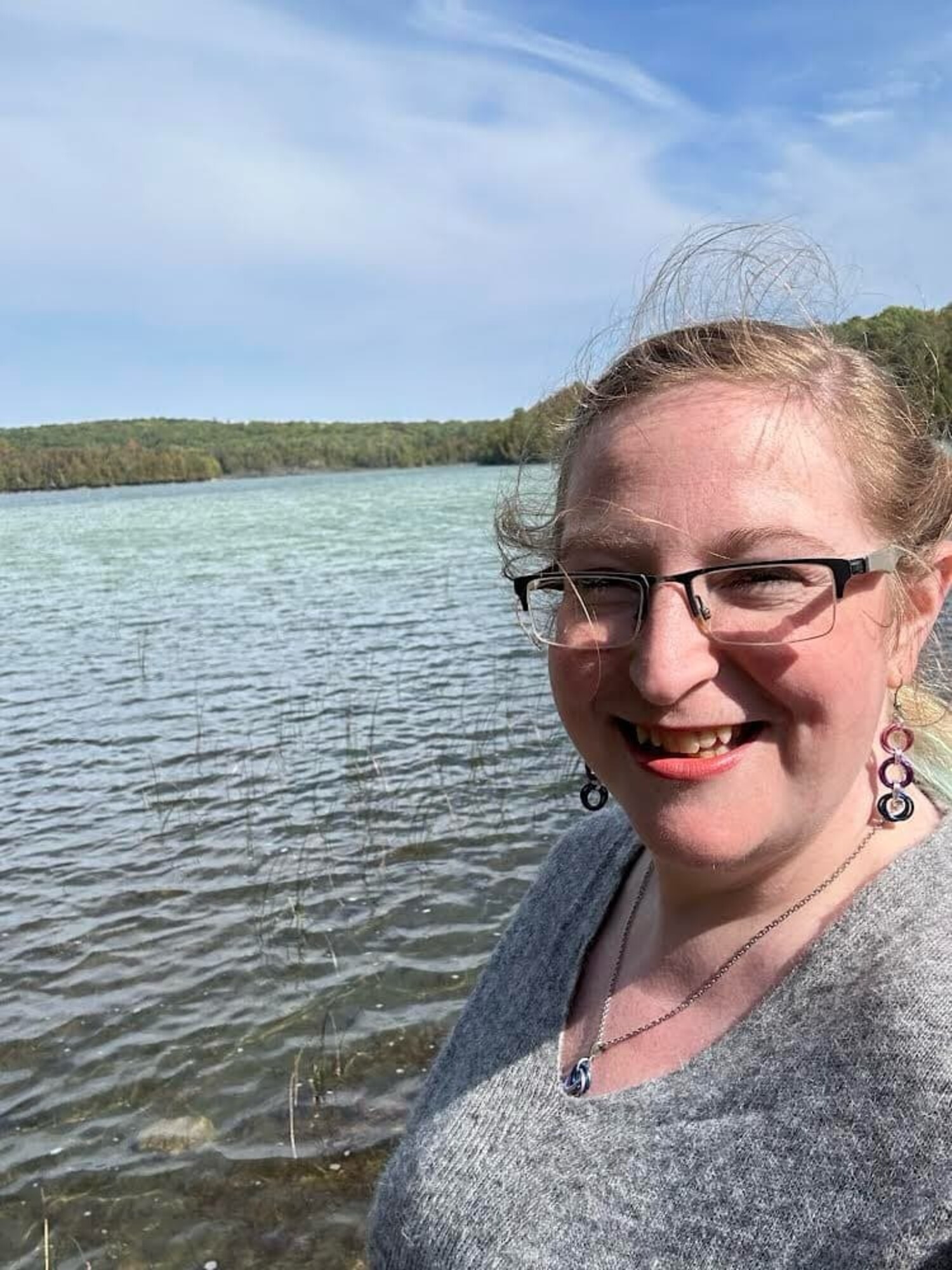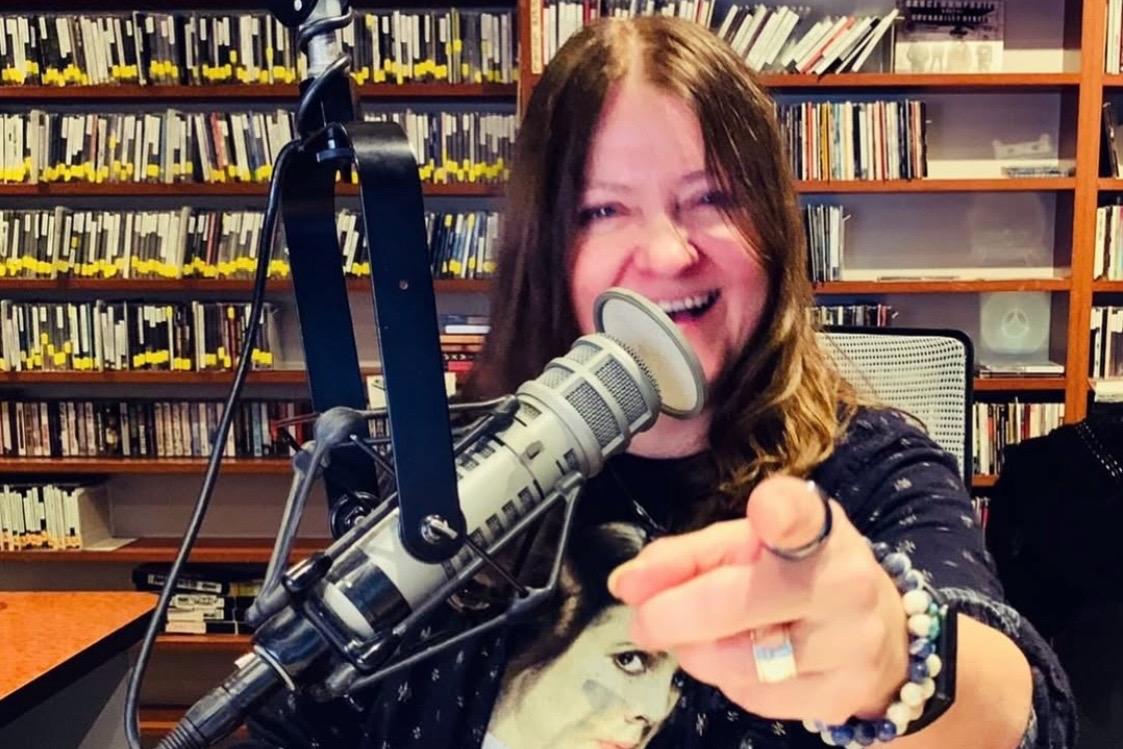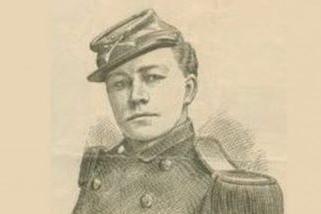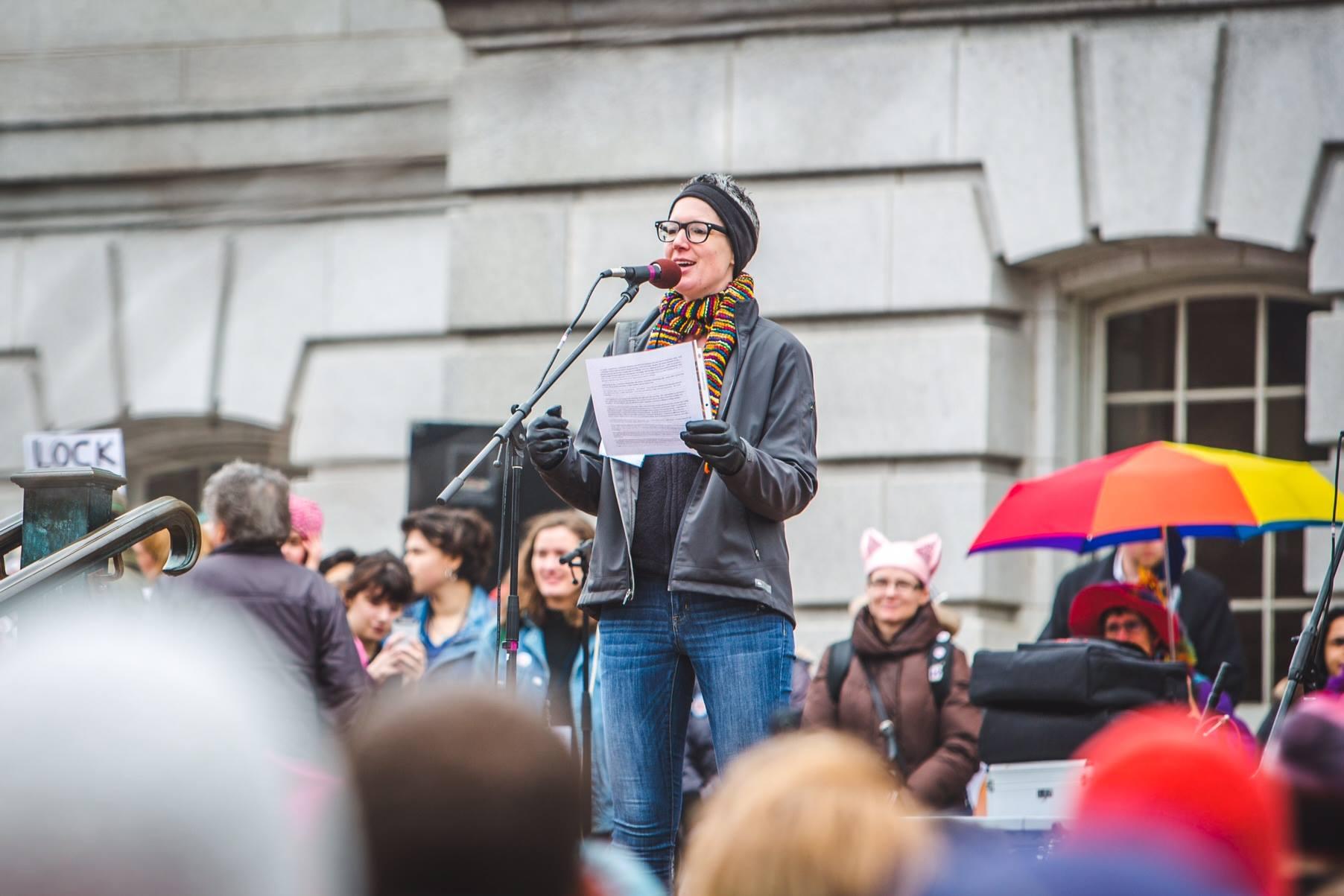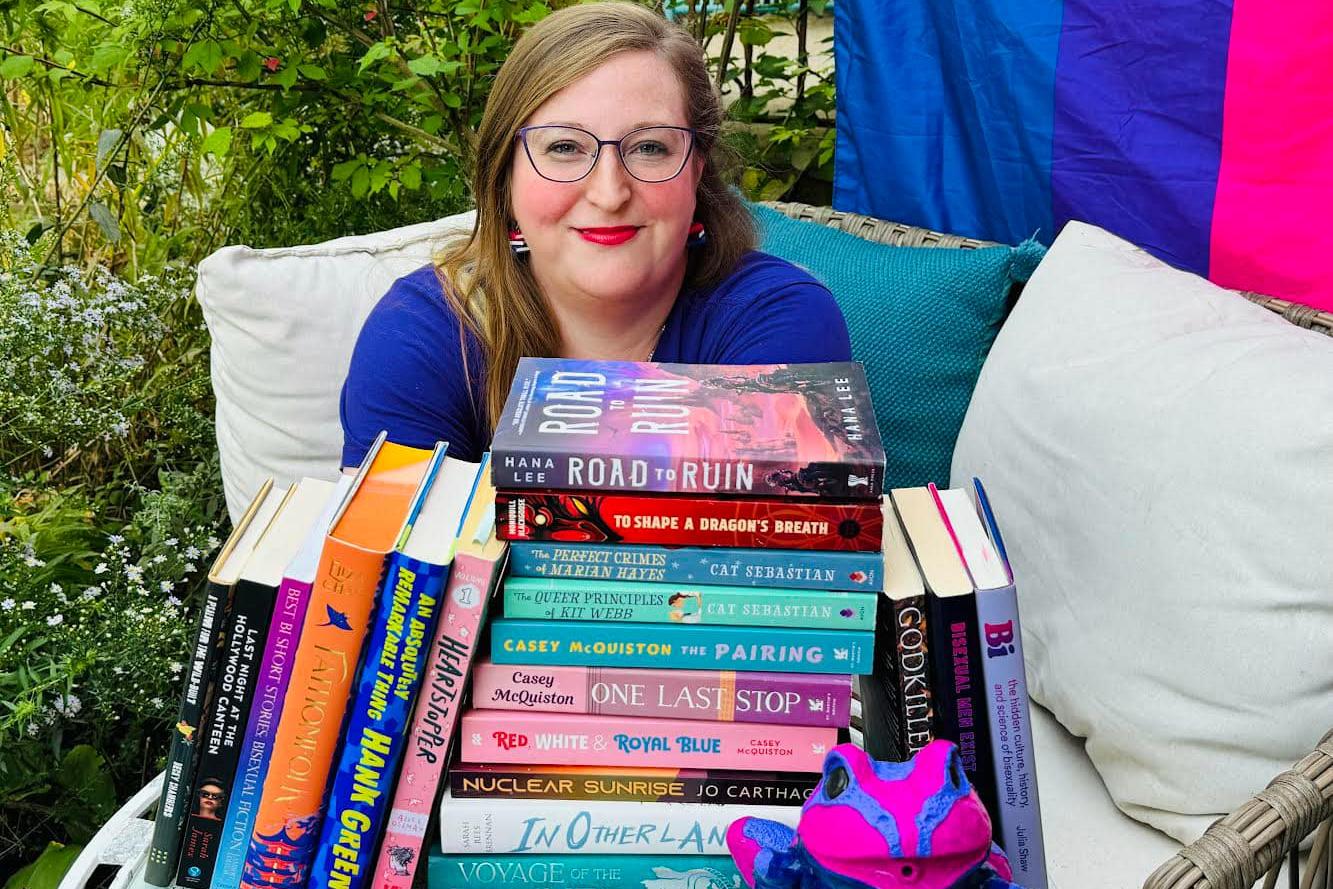
Grace Moone: my life as a bi beacon

"Bi and pan folks endure a lot of harm from outside our community. It hurts more when that discrimination comes from within the LGBTQ community.”
Growing up in the progressive rural enclave of High Falls, New York, Grace was surrounded by queer elders and peers, but the queerness of those relationships was often left politely unspoken, leaving her without clear role models or validation for her burgeoning bisexuality.
“It was a very interesting place to grow up, as a queer kid in a rural small town, but not the type of rural small town that we think of America as having. I remember, as a theater kid, having a cast party at a friend’s house. His mom, a single mom at the time, could not find any straight men to date in our small town.”
Grace’s parents were supportive of her queerness. They took her coming out in stride, even though her father was a conservative Republican elected official. In fact, her parents were often the ones other queer kids would seek out to practice the coming out discussions they would later have with their own families. Despite the comfort Grace had in her home, did not translate to having many openly bi role models and mentors for her own identity.
This reluctance continued into Grace's college years at Rockford College (now Rockford University) and early adulthood, as she grappled with feelings of not being "bi enough" to rightfully call herself bisexual. While Grace always was involved in Gay-Straight Alliances and other organizations supportive of the LGBTQ community she often felt as though she wasn’t queer enough to belong.
“You're told your identity is imaginary or people aren’t really like that (bisexual.) You’re made to doubt yourself too. I got the message that the people who experience the most harm from being queer are gay men or lesbians. Whether overtly intentional or not, this was widely implied."
"Bi and pan folks endure a lot of harm from outside our community. It hurts more when that discrimination comes from within the LGBTQ community.”
Grace makes the point that bi individuals are braced for discrimination from the straight, conservative, extreme religious folks where it is expected. It is when participating in pride events or other queer-focused activities and one’s queerness is questioned that the bi antagonism is most challenging.
It wasn't until Grace became involved with Bi Pride Milwaukee that she truly found an affirming community. Marching in the Pride Parade was a profound moment, seeing the joy and relief on the faces of onlookers who finally had visible bi representation since it had been some time since any organized group of bi people had marched in the parade.
“It had been years since there had been an overt bisexual / pansexual group in the parade," said Grace. "We were there that first year with our little red wagon and our handmade banner, and streamers and signs. We were continuing bisexual activism and visibility that went back decades, but was so rarely seen. No corporate sponsorship, just people coming together to make art and handcrafted pieces and seeing people in the crowd collapsing in joy to see us, running up to us and giving us hugs and screaming excitedly from the sidelines."
"That was the moment when I realized that what I was doing was important beyond my own little life. We could make shifts in our city, in our community, and our world, and these shifts matter a lot more than I may ever know.”
This experience, and the subsequent connections Grace has made across different LGBTQ spaces, have solidified her role as a bi beacon: someone who is unequivocally and unapologetically bisexual, and uses that visibility to inspire and empower others.
Outside of her extensive bisexual activism, Grace is also on the Council of Stewards for the Mythopoeic Society, a non-profit organization showcasing the work of the Inklings, a group of men who were associated with J.R.R. Tolkien, author of Lord of the Rings. She is also a podcaster, who along with bisexual and non-binary co-hosts broadcast, Queer Lodgings, a Tolkien podcast. Recently, the podcast co-hosts also hosted an academic seminar focused around queerness and queer readings in works of fantasy.
“The podcast holds space for queer and progressive readings of the works of Tolkien and the different adaptations that are out there and takes a critical lens to that as well.”
Grace also facilitates the Bi+ Book Club for Bi Pride Milwaukee. The Book Club is held every other month with a variety of books focusing on Bi+ characters.
“It really matters for us to see ourselves on the page, to see ourselves portrayed in literature.”
Grace also considers it very important to create something for future generations. She wants to see more Gen Z and Gen Alpha folks connect with the work that Bi Pride Milwaukee is doing for the non-monosexual community and to get involved themselves.
“It reminds me of the lyrics of a Dessa song which has been very resonant in my own life. Dessa writes ‘standing on the acorn I planted, I hope that oak trees grow.’ That’s the mentality that I’ve taken toward activism, organizing queer visibility and bi visibility, progressive work in general social spaces."
Grace's story is a testament to the power of community, representation, and the slow but steady progress that can be made when people commit to building the change they wish to see, even if the results aren't immediately apparent. Her perseverance and pride in her identity serve as an inspiration for bisexual people everywhere seeking validation and belonging.
"I’m not expecting to see things change overnight," said Grace. "But I do hope we are building on something for the future. It matters to be able to look back and see the progress we’ve built.”
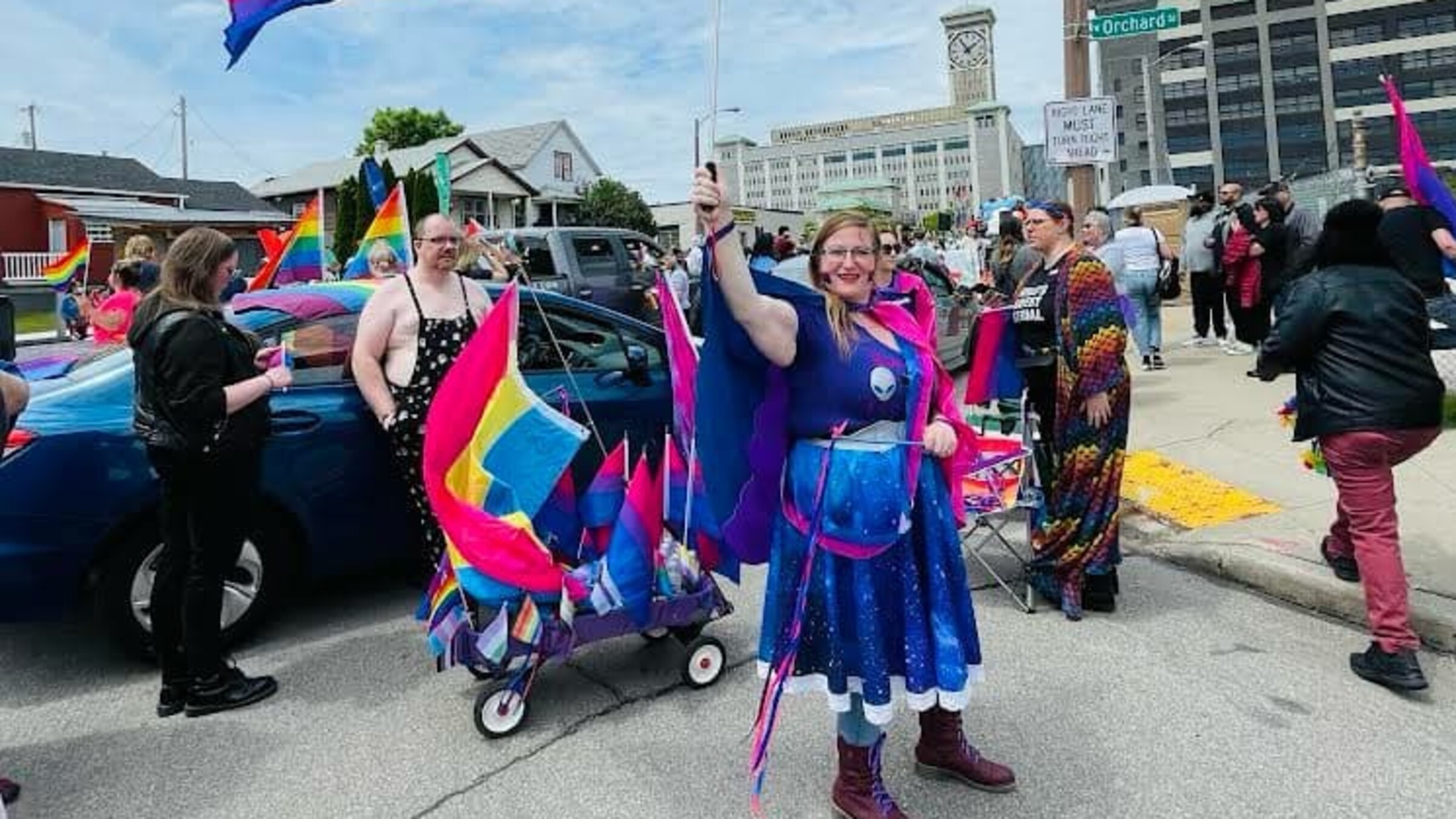 Grace Moone
Grace Moone
recent blog posts
April 24, 2025 | Rachael Anderson
April 22, 2025 | Michail Takach
April 21, 2025 | Michail Takach
The concept for this web site was envisioned by Don Schwamb in 2003, and over the next 15 years, he was the sole researcher, programmer and primary contributor, bearing all costs for hosting the web site personally.
